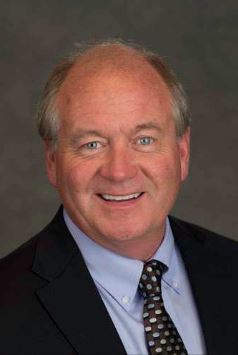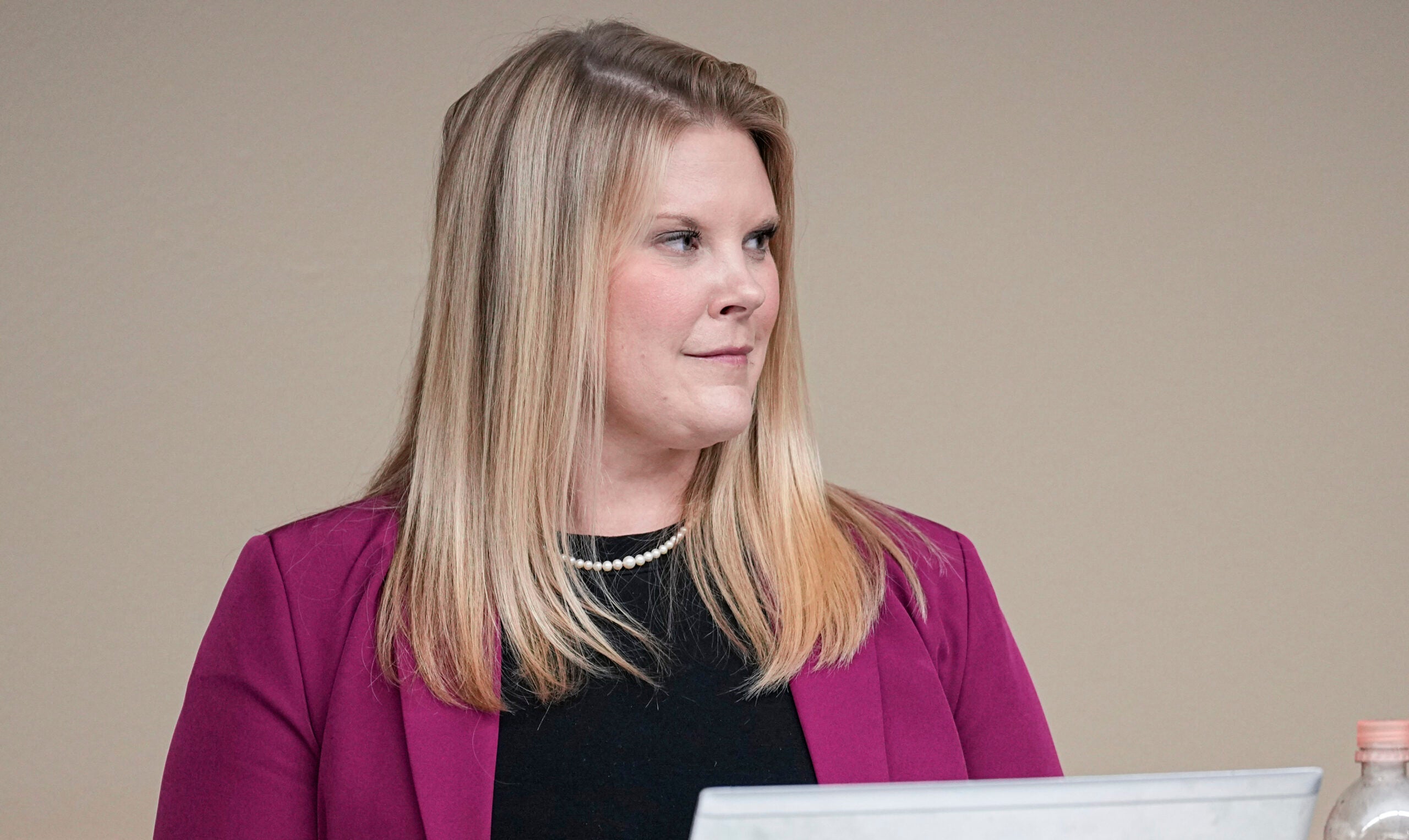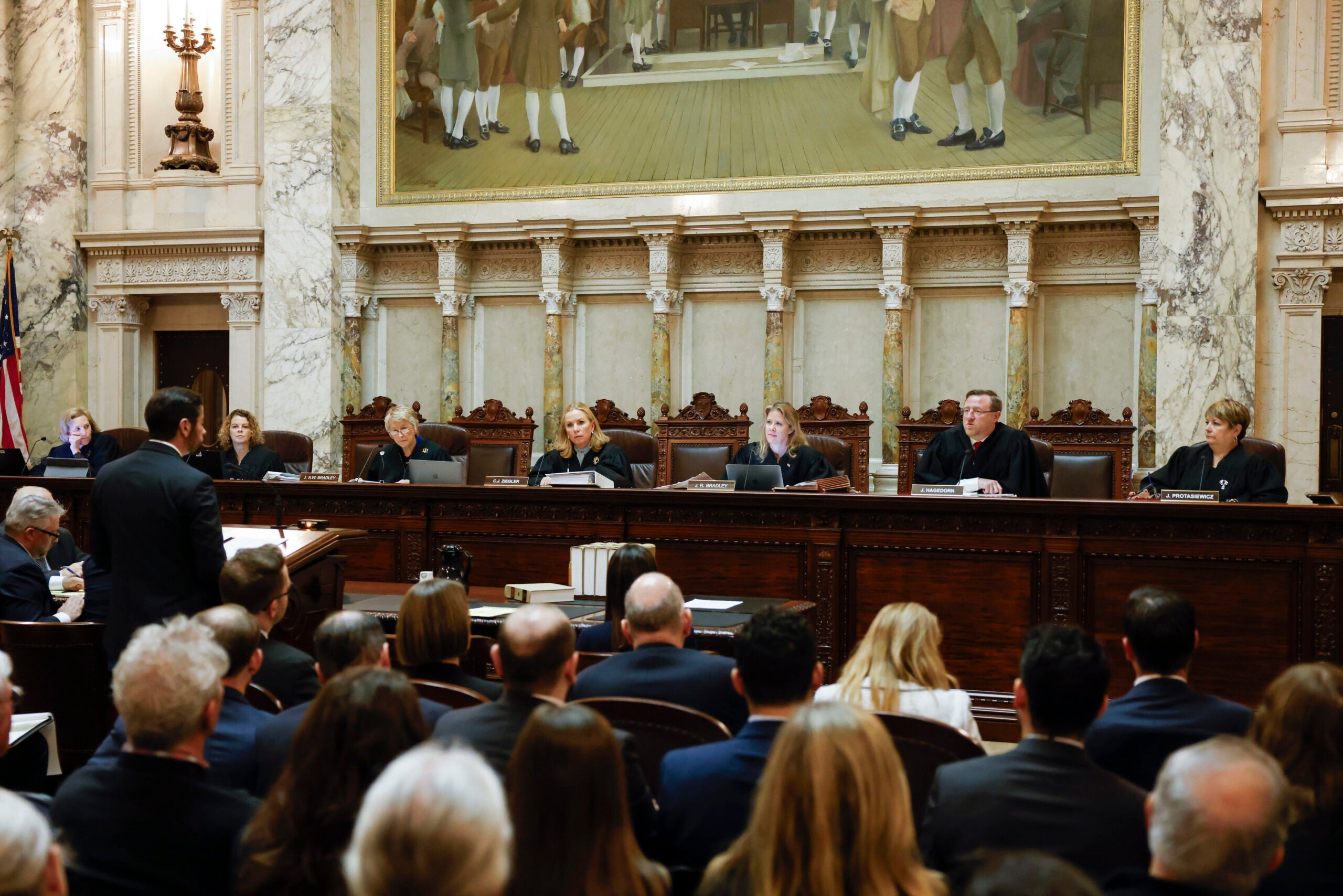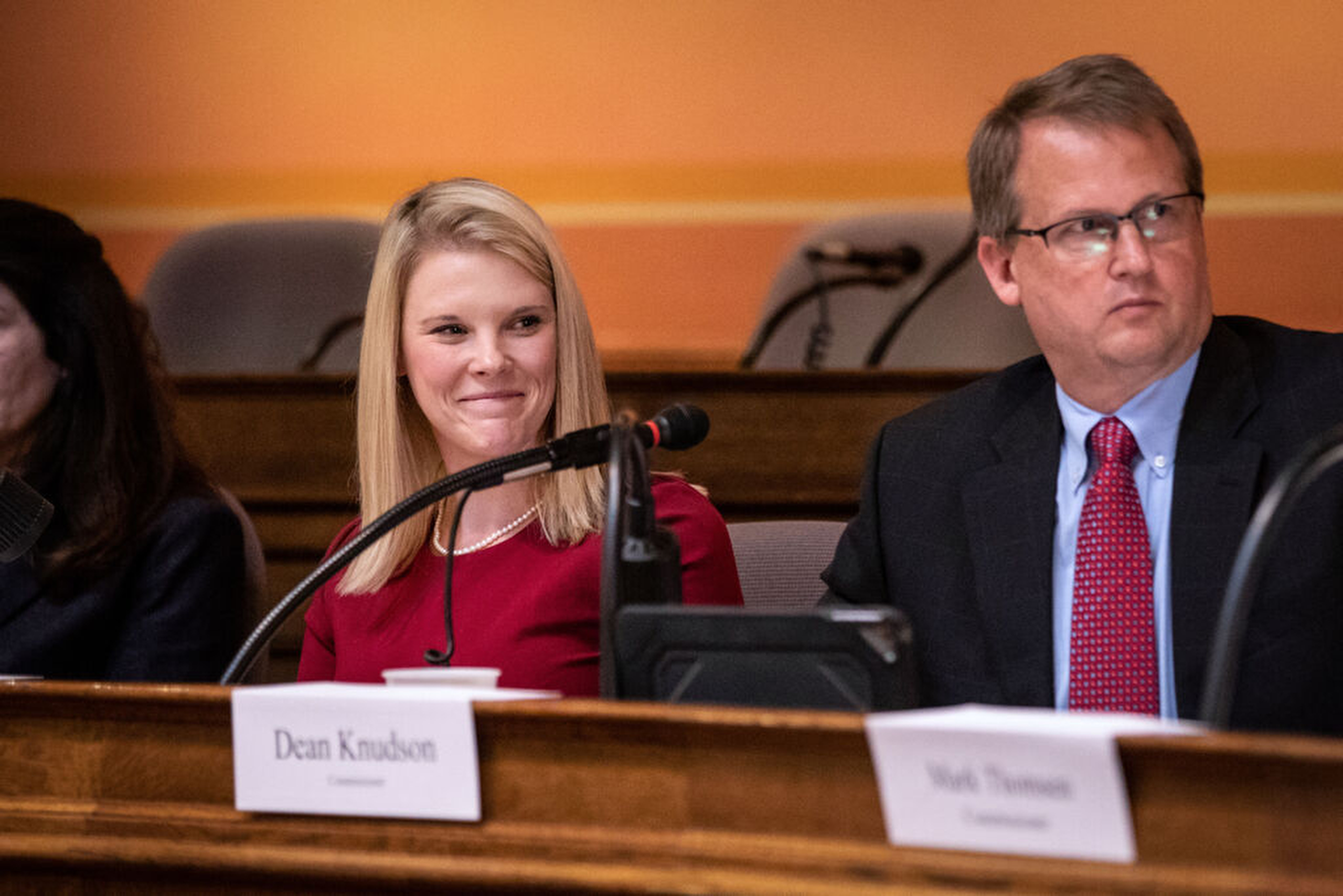Dr. Fred Prehn, the former head of the Wisconsin Natural Resources Board, can continue to serve on the policy-making board now that the Wisconsin Supreme Court has ruled it’s legal for him to remain.
The 4-3 ruling Wednesday ensures conservatives will continue to hold a 4-3 majority on the board that decides contentious environmental policies, including recently enacted PFAS standards in drinking and surface waters.
Wisconsin Attorney General Josh Kaul sued to remove Prehn from the NRB in August. The board’s former chair has refused to step down from the policy-making body after his six-year term expired in May last year. Former Republican Gov. Scott Walker appointed Prehn in 2015.
Stay informed on the latest news
Sign up for WPR’s email newsletter.
“(T)he expiration of Prehn’s term on the DNR Board does not create a vacancy. Prehn lawfully retains his position on the DNR Board as a holdover,” wrote Chief Justice Annette Ziegler for the majority. “Therefore, the Governor cannot make a provisional appointment to replace Prehn.”
The court found a vacancy is only created when a person dies, resigns, or is removed for cause.
Prehn’s decision to stay on the board has blocked Democratic Gov. Tony Evers’ appointee Sandy Naas from taking a seat. Evers appointed Naas and Sharon Adams to the board in April of last year to fill vacancies left by members whose terms expired, including Prehn.
A Dane County judge ruled in favor of Prehn in September, and Kaul asked the state Supreme Court to hear the case.
In a statement Wednesday, Prehn said he will continue to represent Wisconsinites on the board until the state Senate confirms a successor.

“Josh Kaul and the Tony Evers administration wasted substantial taxpayer dollars in legal fees on a political stunt to satisfy their liberal donor base. Their lack of understanding of case law is obvious and that lack of understanding caused many losses, including hours of time, emotion and cost on this issue,” Prehn said. “Until my successor is duly confirmed by the Senate, I intend to continue my participation on the NRB and will discuss, debate, and vote the issues to the best of my ability in order to represent the citizens of WI. I expect the DNR Secretary’s office and the Governor to accept and respect this decision.”
Prehn added he has received insults and attacks for his decision to stay on the board, noting he was “disgusted” with the way he was treated by the Evers administration and DNR leadership.
Evers said in a statement that he’s appointed “exceptionally qualified” individuals that should have been confirmed a long time ago.
“Today’s decision continues to underscore the erosion of democratic institutions at the hands of Republicans in this state,” Evers said. “It’s wrongheaded, it’s shortsighted, and it’s politics at its most dangerous.”
In his defense, Prehn argued a 1964 decision by the Wisconsin Supreme Court allows him to continue serving on the board until the Republican-controlled Senate confirms his successor. Conservative justices said they saw no reason to depart from that ruling, saying it “remains as sound today as it did when the case was first decided.”
Kaul had argued state law allows the governor to remove Prehn for any reason after the end of his term.
“The people of Wisconsin selected Tony Evers to serve as Governor, yet almost 3 1/2 years into his term, the Natural Resources Board remains controlled by Walker appointees,” Kaul said in a statement. “Today’s decision allows that antidemocratic situation to continue indefinitely—taking power away from Wisconsin voters, and instead leaving it to the whims of appointees of an administration that was voted out of office.”
Justice Brian Hagedorn joined the conservative majority in Wednesday’s ruling with all three liberals dissenting. Hagedorn has been a frequent swing vote on the court, but he had questioned the governor’s authority to remove Prehn.
The court’s liberal justices had raised concerns about the broad implications for political appointees and whether holdovers can remain in positions indefinitely if the state Senate refuses to take action.
“The majority’s absurd holding allows Prehn’s six-year term on the Board of Natural Resources — which expired over a year ago — to last for as long as Prehn wants it to, so long as he refuses to leave and the senate doesn’t confirm a successor nominated by the governor,” wrote Justice Rebecca Dallet for the minority. “And even though his term is long expired, the governor can’t remove him except for cause.”
Dallet said the decision steers state government into “disorder and chaos” and threatens the separation of powers.
Prehn’s attorney Mark Maciolek disputed the notion that the decision would have wide-ranging effects on other government positions that are waiting to be filled.
“The ones that require nomination by the governor and confirmation by the Senate — it’s between the Senate and the governor to work that out, which is, frankly, how the system is designed,” Maciolek said. “It’s meant to be slower and meant to be deliberative and to constrain the governor from just remaking those appointed bodies overnight. The NRB is a good example of that.”
Prehn isn’t the first board member to hold onto his seat past the end of his term. Steve Willett and Jim Tiefenthaler Jr. stayed on the board under both Republican and Democratic governors in the early 2000s.
Prehn could remain on the board for years if Republican lawmakers refuse to confirm Evers’ appointee. The state Senate adjourned its latest session earlier this year without confirming Naas.
When reached by phone Wednesday, Naas said she’s proud Wisconsin has long been the nation’s leader in natural resource management. She said that’s due largely to the board’s staggered terms that were specifically designed to prevent any one party’s political influence.
“It’s disheartening that one member can degrade Wisconsin’s high standards by keeping their thumb on the scale to ensure political influence is enabled,” said Naas in a statement. “We need to return to a system that keeps politics out of natural resource management for the good of our citizens and the resources they depend on.”

The Republican-controlled Senate has refused or delayed confirmation of Evers’ appointees, including former Wisconsin Department of Health Services Secretary Andrea Palm and Wisconsin Department of Transportation Secretary Craig Thompson. The Milwaukee Journal Sentinel reported more than 100 appointments by Evers were still awaiting confirmation as of last fall.
The Journal Sentinel also reported that two Republican candidates for governor, Rebecca Kleefisch and Kevin Nicholson, would replace all of Evers’ unconfirmed appointees on the University of Wisconsin System Board of Regents with their own nominees if elected.
Tribes, environmental advocates and wildlife groups have criticized Prehn’s decision to remain on the board. They’ve argued his refusal to step down thwarts the will of the people who elected Evers and taints the board’s decisions on natural resources policy.
“For more than a year Prehn has squatted in an office that isn’t his, doing serious damage to Wisconsin’s wildlife and the credibility of the Board. We’re disappointed the majority would allow this antidemocratic stunt to continue, and agree with the three dissenting justices who called today’s holding ‘absurd,’” said Nicholas Arrivo, an attorney for the Humane Society of the United States. “Prehn should still do the right thing and resign, or risk irreparably tarnishing citizens’ trust in the NRB.”
Last summer, Midwest Environmental Advocates obtained records that show Prehn communicated with staff of Republican lawmakers and lobbyists about his decision to remain on the board.
In a statement, the environmental law center said the ruling is a blow to the health of the environment.
“Fred Prehn coordinated with Scott Walker, lobbyists for Wisconsin Manufacturers and Commerce and an unaccountable, gerrymandered legislature to retain control of environmental policy in Wisconsin,” wrote MEA. “As a result, Scott Walker’s appointees continue to control the Department of Natural Resources 1,331 days and counting after Walker lost the election.”
Prehn has voted with conservatives on the board to weaken regulators’ proposed standard for PFAS in drinking water, as well as expand state harvest levels for wolves last year.
Wolf advocates, conservationists and tribes opposed a fall wolf season following the February 2021 wolf hunt. Hunters killed 218 wolves in less than three days. Hunters and farmers argued there are too many wolves in Wisconsin that have killed hunting dogs and livestock.
The NRB’s approval of a 300-wolf quota for last fall’s hunt sparked legal challenges from tribes and wildlife advocacy groups, which eventually led to the season being placed on hold. A federal judge restored federal protections for the animal earlier this year.
Wisconsin Public Radio, © Copyright 2025, Board of Regents of the University of Wisconsin System and Wisconsin Educational Communications Board.





